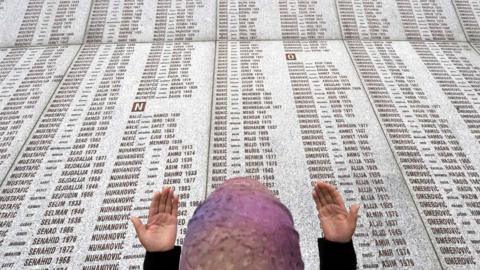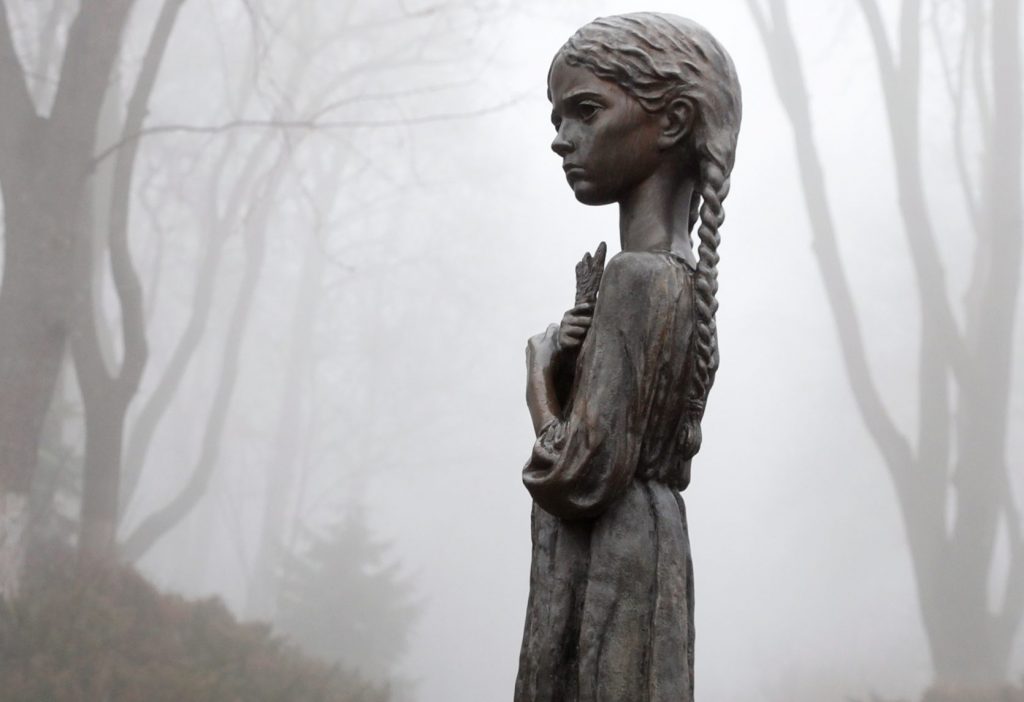

The ICTY, in its judgments in the cases of Prosecutor v. Germany case, the European Court of Human Rights noted that: On 12 July 2007, in its judgement on the Jorgić v. Gravely concerned about the deterioration of the situation in the Republic of Bosnia and Herzegovina owing to intensified aggressive acts by the Serbian and Montenegrin forces to acquire more territories by force, characterized by a consistent pattern of gross and systematic violations of human rights, a burgeoning refugee population resulting from mass expulsions of defenceless civilians from their homes and the existence in Serbian and Montenegrin controlled areas of concentration camps and detention centres, in pursuit of the abhorrent policy of "ethnic cleansing", which is a form of genocide. General Assembly resolution 47/121 in its preamble deemed ethnic cleansing to be a form of genocide stating: On it was announced that, with the agreement of the UK authorities, he would serve the rest of his sentence in a UK prison. In 2019 an appeals court increased his sentence to life imprisonment. On 24 March 2016, former Bosnian Serb leader and the first president of the Republika Srpska, Radovan Karadžić, was found guilty of genocide in Srebrenica, war crimes, and crimes against humanity and sentenced to 40 years in prison. The Srebrenica massacre was found to be an act of genocide by the, a finding upheld by the ICJ. In 2005, the United States Congress passed a resolution declaring that the Serbian policies of aggression and ethnic cleansing meet the terms defining genocide.

These included a resolution by the United Nations General Assembly and three convictions for genocide in German courts (the convictions were based upon a wider interpretation of genocide than that used by international courts).

In the 1990s, several authorities asserted that ethnic cleansing as carried out by elements of the Bosnian Serb army was genocide. The acts have been found to have satisfied the requirements for "guilty acts" of genocide, and that, "some physical perpetrators held the intent to physically destroy the protected groups of Bosnian Muslims and Croats". The ethnic cleansing campaign included extermination, unlawful confinement, mass rape, sexual assault, torture, plunder and destruction of private and public property, and inhumane treatment of civilians the targeting of political leaders, intellectuals, and professionals the unlawful deportation and transfer of civilians the unlawful shelling of civilians the unlawful appropriation and plunder of real and personal property the destruction of homes and businesses and the destruction of places of worship. The ethnic cleansing that took place in VRS-controlled areas targeted Bosniaks and Bosnian Croats. The events in Srebrenica in 1995 included the killing of more than 8,000 Bosniak ( Bosnian Muslim) men and boys, as well as the mass expulsion of another 25,000–30,000 Bosniak civilians by VRS units under the command of General Ratko Mladić. The Bosnian genocide ( Bosnian: bosanski genocid) refers to either the Srebrenica massacre or the wider crimes against humanity and ethnic cleansing campaign throughout areas controlled by the Army of Republika Srpska (VRS) during the Bosnian War of 1992–1995.


 0 kommentar(er)
0 kommentar(er)
